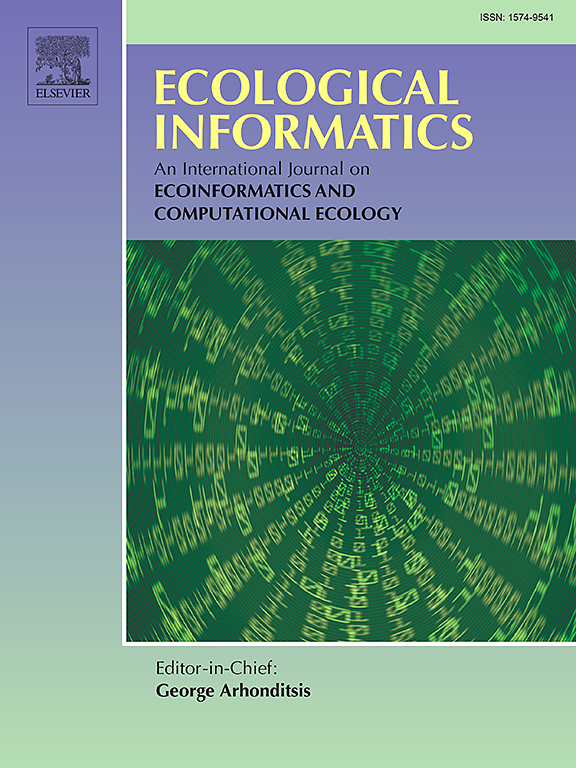Deep learning-based analysis of insect life stages using a repurposed dataset
IF 7.3
2区 环境科学与生态学
Q1 ECOLOGY
引用次数: 0
Abstract
Insect pests pose a significant risk to agriculture and biosecurity, reducing crop yields and requiring effective management. Accurate identification of early life stages is often required for effective management but is generally reliant on expert evaluation, which is both costly and time-consuming. To address this, we use a deep learning-based approach for insect species and life-stage classification from digital images. We repurposed the IP102 dataset by adding detailed annotations for four life stages — egg, larva, pupa, and adult — alongside the original species categories. Two deep learning models, based on ResNet50 and EfficientNetV2M, were tested for classification accuracy in this dual-layered identification task. Although both models accomplished the task well, the EfficientNetV2M model performed slightly better than the ResNet50, achieving 72.4% precision, 72.1% recall, and an F1-score of 72.0%. Our results demonstrate the potential of deep learning for automated insect species and life-stage classification, providing a high throughput and efficient solution towards agricultural monitoring and pest management.
使用重新使用的数据集对昆虫生命阶段进行基于深度学习的分析
害虫对农业和生物安全构成重大风险,降低作物产量,需要有效管理。准确识别生命早期阶段往往是有效管理的需要,但通常依赖于专家评估,这既昂贵又耗时。为了解决这个问题,我们使用基于深度学习的方法从数字图像中对昆虫物种和生命阶段进行分类。我们重新利用了IP102数据集,在原始物种分类的基础上,添加了四个生命阶段(卵、幼虫、蛹和成虫)的详细注释。我们测试了基于ResNet50和EfficientNetV2M的两种深度学习模型在该双层识别任务中的分类准确率。尽管两种模型都很好地完成了任务,但EfficientNetV2M模型的表现略好于ResNet50,达到了72.4%的精度,72.1%的召回率,f1得分为72.0%。我们的研究结果证明了深度学习在昆虫物种和生命阶段自动分类方面的潜力,为农业监测和害虫管理提供了高通量和高效的解决方案。
本文章由计算机程序翻译,如有差异,请以英文原文为准。
求助全文
约1分钟内获得全文
求助全文
来源期刊

Ecological Informatics
环境科学-生态学
CiteScore
8.30
自引率
11.80%
发文量
346
审稿时长
46 days
期刊介绍:
The journal Ecological Informatics is devoted to the publication of high quality, peer-reviewed articles on all aspects of computational ecology, data science and biogeography. The scope of the journal takes into account the data-intensive nature of ecology, the growing capacity of information technology to access, harness and leverage complex data as well as the critical need for informing sustainable management in view of global environmental and climate change.
The nature of the journal is interdisciplinary at the crossover between ecology and informatics. It focuses on novel concepts and techniques for image- and genome-based monitoring and interpretation, sensor- and multimedia-based data acquisition, internet-based data archiving and sharing, data assimilation, modelling and prediction of ecological data.
 求助内容:
求助内容: 应助结果提醒方式:
应助结果提醒方式:


